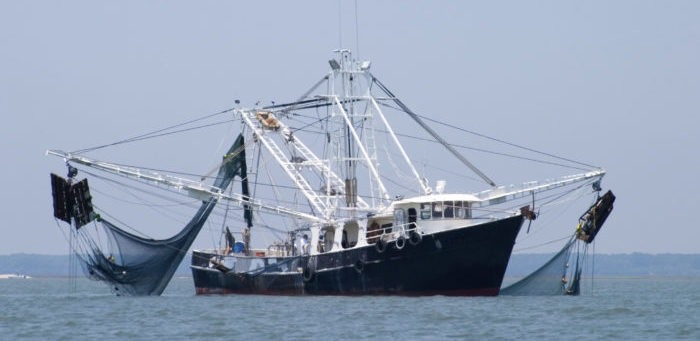The United States and 12 other World Trade Organization (WTO) members have announced a new initiative to prohibit harmful fisheries subsidies, particularly those that contribute to overfishing and overcapacity or are linked to illegal fishing.
On the eve of the Our Ocean Conference – convening September 15 and 16 at the Department of State in Washington, DC – United States Trade Representative Michael Froman and ministers from around the world released a joint statement describing their shared commitment to launch plurilateral negotiations at the WTO that will seek to: prohibit harmful fisheries subsidies, including those that contribute to overfishing and overcapacity or are linked to illegal fishing; and strengthen the reporting and transparency of fisheries subsidies. This initiative will serve as a concrete example of how the WTO can move forward with its negotiating agenda, building on the outcomes at its recent Ministerial Conference in Nairobi last December.
“We must take action now to protect global fisheries for future generations. The health of our oceans and their fisheries are essential to global food security, environmental sustainability, as well as the future prosperity of America’s fishermen and women,” said Ambassador Froman. “The United States has been a leader on this issue. We are eager to join with similarly committed WTO Members to negotiate new rules that will help protect the marine environment and allow American fishermen and women to compete on a fair and level playing field.”
Every year, tens of billions of dollars in harmful fisheries subsidies contribute to overfishing and overcapacity around the world – which is contributing significantly to a decline in fisheries resources, negatively impacting marine ecosystems, distorting the global marketplace, and putting American fishing industries at a competitive disadvantage. According to the Food and Agriculture Organization (FAO) of the United Nations, 58 percent of the world’s fisheries are already being fished at their maximum capacities, with 31 percent being over-fished at biologically unsustainable levels. The joint statement released today by Ambassador Froman and ministers from Argentina, Australia, Canada, Chile, Colombia, New Zealand, Norway, Papua New Guinea, Peru, Singapore, Switzerland, and Uruguay will seek to change that.
“We are taking action with the goal of eliminating harmful subsidies, including those subsidies that contribute to overfishing and overcapacity, and subsidies linked to illegal, unreported and unregulated (IUU) fishing,” the statement reads. “We believe this initiative will result in significant trade, economic, development, and environmental benefits.”
The fate of the world’s fisheries have enormous implications for the future of the global economy, and in the daily lives of people around the world. More than 50 million people work in the global fishing and aquaculture sectors, many in small-scale fisheries that are critical to the economies of their communities. Over three billion people, many of whom live in the poorest and least-developed countries, rely on food from the ocean as a significant source of protein, highlighting the role of global fisheries in food security worldwide.
The initiative will help ensure the long-term sustainability of global fisheries, and level the playing field for American fishing industries and workers. American fishing industries support 1.4 million jobs, generate $42 billion in income, and contribute $64 billion annually to our economy. In 2014, American fishing industries exported 3.4 billion pounds of edible fish products valued at $5.8 billion to markets around the world.
The Trans-Pacific Partnership (TPP) broke new ground in this area by including the first enforceable prohibitions on harmful fisheries subsidies among 12 Asia-Pacific trading partners. The initiative will build on the progress made in TPP, bringing additional trading partners to the table who are committed to ending to harmful fisheries subsidies. The United States hopes to expand upon that progress as negotiations move forward at the WTO in Geneva.





























































